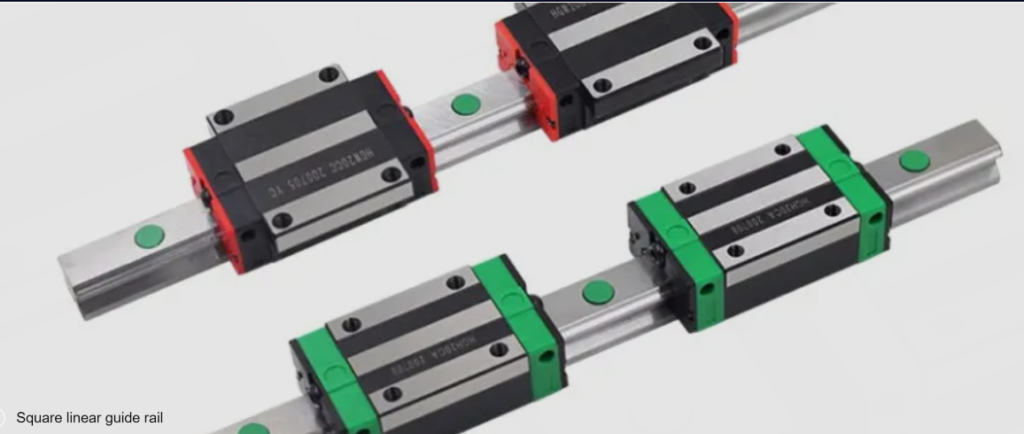The Ultimate Guide to SBR Guide Rails: Everything You Need to Know

If you’re delving into the world of machinery and automation, chances are you’ve come across the term “SBR guide rails.” These rails play a crucial role in ensuring smooth and precise movement in various mechanical systems. Whether you’re a seasoned engineer or a newcomer to the field, understanding SBR guide rail is essential. In this comprehensive guide, we’ll explore everything you need to know about SBR guide rails, from their functionality to their applications.
What are SBR Guide Rails?
SBR guide rails, also known as SBR linear guides, are essential components in linear motion systems. They provide support and guidance to moving parts, allowing them to move along a predetermined path with minimal friction and precise accuracy. SBR stands for Steel Ball Rail, indicating the use of steel balls within the rail mechanism.
How Do SBR Guide Rails Work?
SBR guide rails work on the principle of recirculating ball bearings. These bearings consist of steel balls housed within a carriage that travels along a rail. The balls roll within the rail, reducing friction and enabling smooth motion. The carriage is typically attached to the moving component of a machine, such as a gantry system or a sliding mechanism. As the carriage moves along the rail, the steel balls recirculate within the carriage, maintaining consistent movement.
Key Components of SBR Guide Rails
Understanding the key components of SBR guide rails is essential for selecting the right rail for your application:
- Rail: The rail is the stationary component of the SBR guide system. It provides a smooth and straight path for the carriage to travel along. Rails are typically made of hardened steel to withstand heavy loads and ensure durability.
- Carriage: The carriage is the moving component that rides along the rail. It houses the recirculating ball bearings and attaches to the moving parts of a machine. Carriages come in various designs to accommodate different load capacities and mounting configurations.
- Steel Balls: Steel balls are the rolling elements that facilitate smooth motion within the SBR guide rail system. These balls are precision-made to ensure low friction and high durability. The number and size of steel balls may vary depending on the load capacity and application requirements.
- End Caps and Seals: End caps and seals are installed at the ends of the rail to protect the internal components from contamination and debris. They help prolong the lifespan of the SBR guide rail system by preventing damage caused by external factors.
Advantages of SBR Guide Rails
SBR guide rails offer several advantages over other types of linear motion systems:
- High Precision: SBR guide rails provide precise linear motion, making them ideal for applications that require accurate positioning, such as CNC machines and robotic systems.
- Smooth Operation: The use of recirculating ball bearings ensures smooth and consistent motion, reducing vibration and noise levels in machinery.
- High Load Capacity: SBR guide rails are capable of supporting heavy loads while maintaining stability and accuracy.
- Long Lifespan: With proper maintenance, SBR guide rails can last for thousands of hours of operation, making them a cost-effective solution for industrial applications.
Applications of SBR Guide Rails
SBR guide rails find widespread use in various industries and applications, including:
- Machine Tools: SBR guide rails are commonly used in CNC milling machines, lathes, and grinding machines to provide precise linear motion for cutting and machining operations.
- Automation Systems: Robotic arms, pick-and-place machines, and automated assembly lines utilize SBR guide rails to facilitate smooth and accurate movement of components.
- Medical Equipment: SBR guide rails are integral components of medical imaging devices, surgical robots, and laboratory automation systems, where precision and reliability are paramount.
- Packaging Machinery: SBR guide rails are employed in packaging machines for tasks such as product sorting, filling, and labeling, ensuring efficient and precise operation.
Choosing the Right SBR Guide Rail
When selecting an SBR guide rail for your application, consider the following factors:
- Load Capacity: Determine the maximum load that the rail system will need to support, ensuring that it can handle the weight of your components.
- Travel Length: Choose a rail length that accommodates the required travel distance of your moving parts, allowing for smooth operation without overextending the rail.
- Accuracy Requirements: Consider the level of precision needed for your application and select a rail system with appropriate accuracy specifications.
- Environmental Conditions: Assess the operating environment for factors such as temperature, humidity, and exposure to contaminants, and choose a rail system with suitable seals and coatings to ensure longevity.
Conclusion
SBR guide rails are essential components in a wide range of machinery and automation systems, providing smooth, precise, and reliable linear motion. By understanding how SBR guide rails work, their key components, advantages, applications, and selection criteria, you can make informed decisions when integrating them into your projects. Whether you’re building CNC machines, robotic systems, or medical equipment, SBR guide rails offer the versatility and performance needed to drive your innovation forward.
For high-quality SBR guide rails and linear motion solutions, visit Shengben Zhejiang China to explore our comprehensive product offerings and expert support. Unlock the potential of your machinery with SBR guide rails designed for excellence.